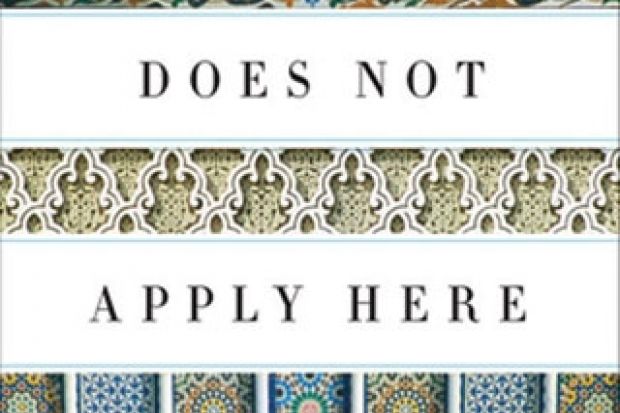This is a storybook, in the positive sense of the word. And it is a courageous one.
Karima Bennoune, a US-based law scholar raised in Algeria, has written an account of the stories of numerous people whose lives have been scarred by Islamic fundamentalism and who decided, using a variety of means, to put up a fight.
I was, admittedly, a little sceptical about the purposes or benefits of such a book. Yet most of my reservations were addressed in its introduction, in which Bennoune succeeds in making a strong case for the need to publish these narratives. She describes her personal starting point via an account of living through the dark years of Algeria’s struggle with fundamentalism in the 1990s.
Although she is clearly passionate about the subject, Bennoune admits that she is walking a tightrope. She is painfully aware of the fact that right-wing elements in the West may use this book as a pretext for further discrimination against Muslims at home and abroad. However, she says that she felt compelled to document these accounts for two reasons: her fight for global human rights and her disappointment with the too-complacent view of allegedly “moderate” Islamists by the political Left in the West. To a large extent it is the tolerant and secular interpretations of Islam that the protagonists of this book are trying to promote as they contest attempts by fundamentalists to place restrictions on their day-to-day lives, and Your Fatwa Does Not Apply Here was prompted by the lack of attention paid in the West to those struggles.
The research on which this book is based took place over three years, around the world, in more than 15 countries with Muslim majorities. Each chapter deals with a different strategy of resistance. First, Bennoune considers artistic resistance: we hear about the difficulties of staging plays in Pakistan and of the Algerian music channels branded “un-Islamic” by fundamentalists. She also writes about the public places – cafes, museums, cinemas and puppet theatres – that are deemed to be against religious teachings, followed by a discussion of the women’s organisations that lobby against everything from street harassment, imposition of dress codes and infringements of women’s legal rights to homophobia and stoning. Bennoune goes on to describe the tribulations of journalists writing against fundamentalism, and then considers the area of Algeria known as the “Triangle of Death”, where fundamentalism had its most deadly impact in the 1990s. An account of Iran under the dictatorship of the ayatollahs focuses on its onslaught on enlightened thinking; a subsequent chapter looks at fundamentalist activities in Minnesota in the US, embedded as they are in a global network of fundamentalism.
In a critical look at the impact of distorted views of fundamentalism in both Muslim-majority and non-Muslim countries, Bennoune records the biting criticism, from people in countries such as Afghanistan and Pakistan, of the role of the West in the fight against the Taliban and al-Qaeda. She probes the role of fundamentalist movements in the aftermath of the Arab Spring, and her last stop is in Mali, a country that experienced fundamentalist violence in early 2012. In conclusion, she takes issue with the view that Muslims and Muslim fundamentalists are victims (of the “War on Terror”, for example), and criticises governments for their reactions (or lack of reaction) to fundamentalist violence and its consequences for people’s everyday lives, for instance in Palestine.
The final chapter’s title summarises this book’s message: “Raise your voice while singing is still possible.” Indeed, this is the motto that seems to run through the stories Bennoune tells. These are stories of resistance and resilience against forces that try to stifle creativity, art, history, the freedom of conscience and of movement, and human rights. These are stories that are seldom, if ever, told by mainstream Western media. They are about incredibly courageous people who, in their struggle for a more humane future, feel betrayed by the West’s singular focus on foreign military intervention. It is hard not to be humbled when reading about their experiences, their bravery and their hope, especially in the face of great personal and national tragedies. In Your Fatwa Does Not Apply Here, Bennoune has written a very necessary book indeed, and it is to be hoped that it will find the widest audience possible.
Your Fatwa Does Not Apply Here: Untold Stories from the Fight against Muslim Fundamentalism
By Karima Bennoune
W. W. Norton, 384pp, £20.00
ISBN 9780393081589
Published 15 October 2013
Register to continue
Why register?
- Registration is free and only takes a moment
- Once registered, you can read 3 articles a month
- Sign up for our newsletter
Subscribe
Or subscribe for unlimited access to:
- Unlimited access to news, views, insights & reviews
- Digital editions
- Digital access to THE’s university and college rankings analysis
Already registered or a current subscriber?




